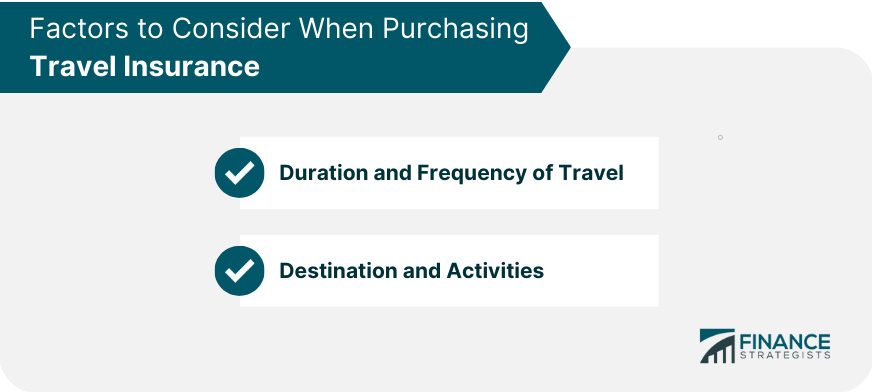What is Travel Insurance and Why You Should Consider It is a crucial topic for anyone planning a trip. Travel insurance serves as a safety net, protecting you from unforeseen circumstances that can disrupt your journey, whether it’s a flight cancellation or a medical emergency abroad. Understanding the ins and outs of travel insurance can offer peace of mind, making your adventures stress-free and enjoyable.
As travel becomes an integral part of our lives, knowing how travel insurance works and its different types can empower travelers to make informed decisions. From covering unexpected medical expenses to providing coverage for lost luggage, travel insurance is designed to safeguard against a variety of potential mishaps that can occur while exploring new horizons.
In today’s fast-paced world, where technology continues to evolve at an unprecedented rate, it’s essential to stay informed about the latest trends and advancements. One area that has garnered significant attention in recent years is the field of artificial intelligence (AI). AI has transcended from being a mere concept in science fiction to becoming an integral part of our daily lives, influencing various sectors, including healthcare, finance, education, and entertainment.
This article aims to provide an in-depth exploration of AI, its applications, and the ethical considerations it brings along.First and foremost, let’s define artificial intelligence. At its core, AI refers to the simulation of human intelligence in machines that are programmed to think and learn like humans. This encompasses a wide range of functionalities, including problem-solving, recognizing speech, understanding natural language, and even visual perception.
With the advancement of machine learning (ML) and deep learning techniques, AI systems can analyze vast amounts of data, learn from it, and make predictions or decisions with minimal human intervention.One of the most exciting applications of AI can be found in the healthcare sector. AI-powered tools are revolutionizing patient care by enabling personalized medicine, early diagnosis, and efficient treatment planning.
For instance, algorithms can analyze medical images more accurately than human radiologists, identifying potential issues such as tumors or fractures that might be missed during manual evaluations. Moreover, AI systems can sift through extensive medical literature to provide healthcare professionals with the latest research findings, thereby enhancing clinical decision-making.In the realm of finance, AI is playing a pivotal role in fraud detection and risk management.
Financial institutions are leveraging machine learning algorithms to analyze transaction patterns and detect unusual activities that could signify fraud. This not only helps protect customers but also saves banks significant amounts of money. Additionally, AI systems can assist in algorithmic trading, where they analyze market data and execute trades at speeds incomprehensible to human traders. This has led to increased efficiency in financial operations and the ability to capitalize on market trends in real-time.The education sector is also experiencing a transformation due to AI.
Personalized learning experiences are becoming increasingly common, thanks to intelligent tutoring systems that adapt to individual students’ learning styles and paces. These systems can analyze a student’s performance and tailor recommendations for study materials or exercises that target their weaknesses. Furthermore, AI can automate administrative tasks, allowing educators to focus more on teaching rather than paperwork, thereby enhancing the overall learning experience.In the entertainment industry, AI is reshaping how content is created and consumed.
Streaming platforms utilize algorithms to analyze viewer preferences and viewing habits, providing personalized recommendations that keep users engaged. Moreover, AI-driven tools are being utilized to generate music, art, and even scripts, pushing the boundaries of creativity. This not only opens new avenues for content creation but also raises questions about originality and copyright in the digital age.Despite the myriad benefits AI brings to various industries, ethical considerations cannot be overlooked.
As AI systems become more integrated into our lives, concerns regarding privacy, security, and accountability arise. For instance, the deployment of AI in surveillance systems raises questions about the balance between safety and individual rights. The potential for bias in AI algorithms is another pressing issue, as these systems can inadvertently perpetuate existing societal biases present in the data they are trained on.
It is crucial for developers and policymakers to address these concerns proactively to ensure the responsible use of AI technology.Another critical aspect of the AI conversation is the potential impact on employment. As automation becomes more prevalent, many fear that AI could lead to widespread job displacement. While it is true that certain job roles may become obsolete, history has shown that technological advancements often create new opportunities.
The key lies in adapting to these changes by reskilling and upskilling the workforce to meet the demands of a rapidly changing job market. Initiatives aimed at fostering a culture of lifelong learning will be essential to equip individuals with the skills necessary for the future.Moreover, collaboration between humans and AI is becoming increasingly vital. Rather than viewing AI as a competitor, it should be seen as a collaborator that enhances human capabilities.

By leveraging AI’s strengths in data processing and analysis, humans can focus on strategic thinking and creativity. This synergy has the potential to drive innovation and lead to breakthroughs that neither humans nor machines could achieve alone.As we look to the future, the possibilities for AI are limitless. With ongoing research and development, we can expect AI to become even more sophisticated, seamlessly integrating into various aspects of our lives.
From smart homes that learn our preferences to autonomous vehicles that promise safer transportation, the future of AI holds great promise.However, as we embrace these advancements, it is imperative to approach AI with a sense of responsibility. The ethical implications of AI must be at the forefront of discussions among developers, businesses, and policymakers. Establishing regulations that promote transparency, fairness, and accountability in AI systems will be crucial to building public trust.In conclusion, artificial intelligence is a transformative force that is reshaping our world in profound ways.
Its applications across healthcare, finance, education, and entertainment demonstrate its versatility and potential to enhance our lives. Yet, with great power comes great responsibility. As we navigate this exciting frontier, it is essential to prioritize ethical considerations and work towards a future where AI serves humanity in a fair and equitable manner. By doing so, we can harness the full potential of artificial intelligence while safeguarding the values that define us as a society.



